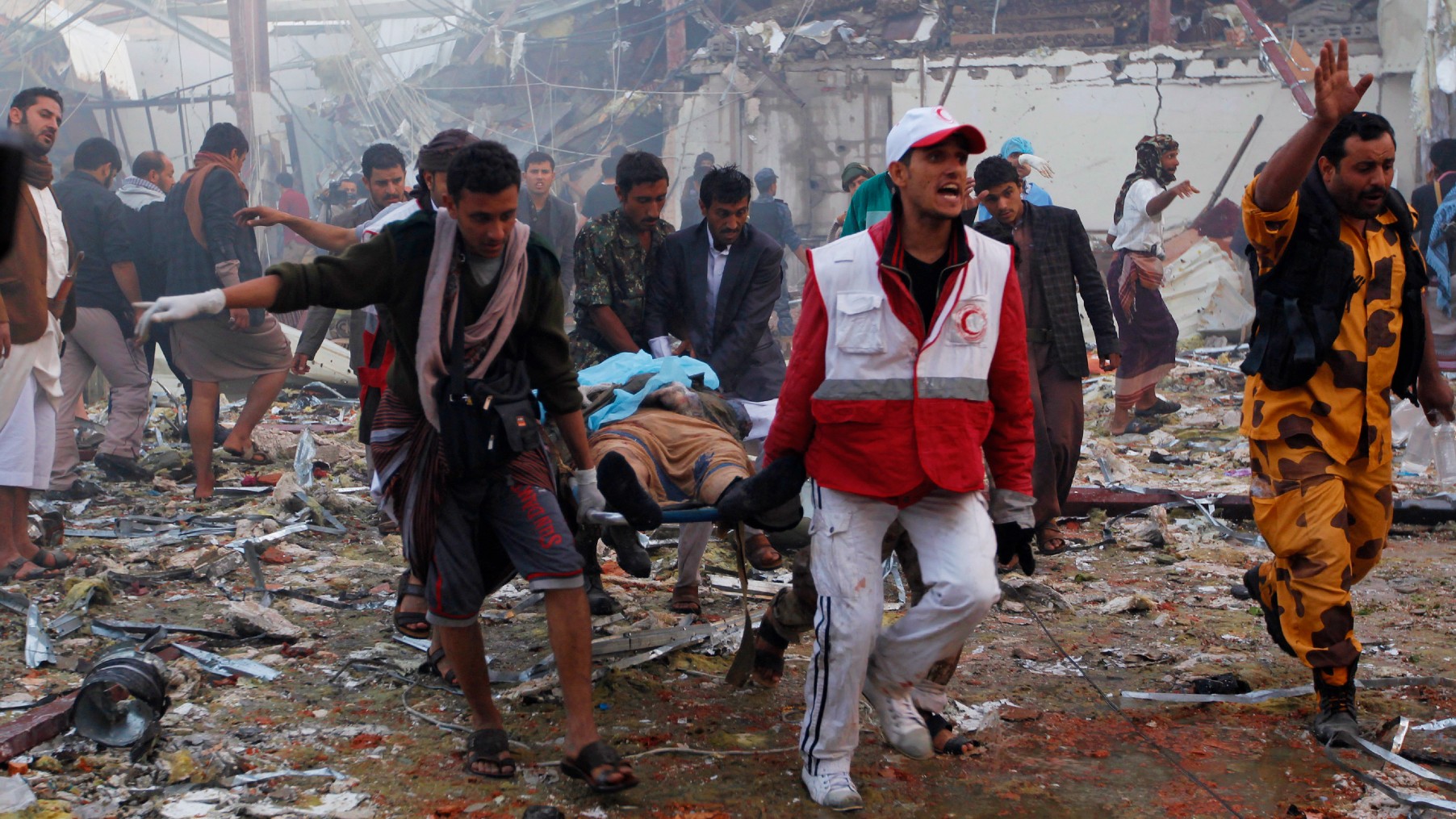It all began with a simple question.
How did British officials react after Saudi Arabia killed 155 people and wounded hundreds more at a funeral in Yemen in 2016?
Hundreds of mourners had gathered on Saturday 8 October 2016 at the Great Hall in Sanaa to pay their respects to the father of Jalal al-Ruweishan, interior minister of the rebel government.
One witness said: "A plane fired a missile and minutes later another plane pounded the building.”
The attack was what is known as a “double tap”, where a first strike is followed by a second that kills additional civilians and emergency workers who have rushed to help the dead and injured. There were also witnesses who said there was a third strike that afternoon.
Reports at the time spoke of the hall strewn with body parts and charred remains. Survivors had had limbs torn off. “The place has been turned into a lake of blood,” one rescuer told reporters.
Two months later, Washington blocked a major weapons sale to Saudi Arabia, with officials pointing specifically to the funeral attack.
But in November 2016, only weeks after the Great Hall attack, Boris Johnson, the foreign secretary at the time, had urged Javid to continue selling arms, a Freedom of Information request would later show.
What had unfolded in Whitehall that October?
This is the story of what happened over three years as we brought our joint experience as an investigative journalist and an academic researching arms exports to try to answer this question.


